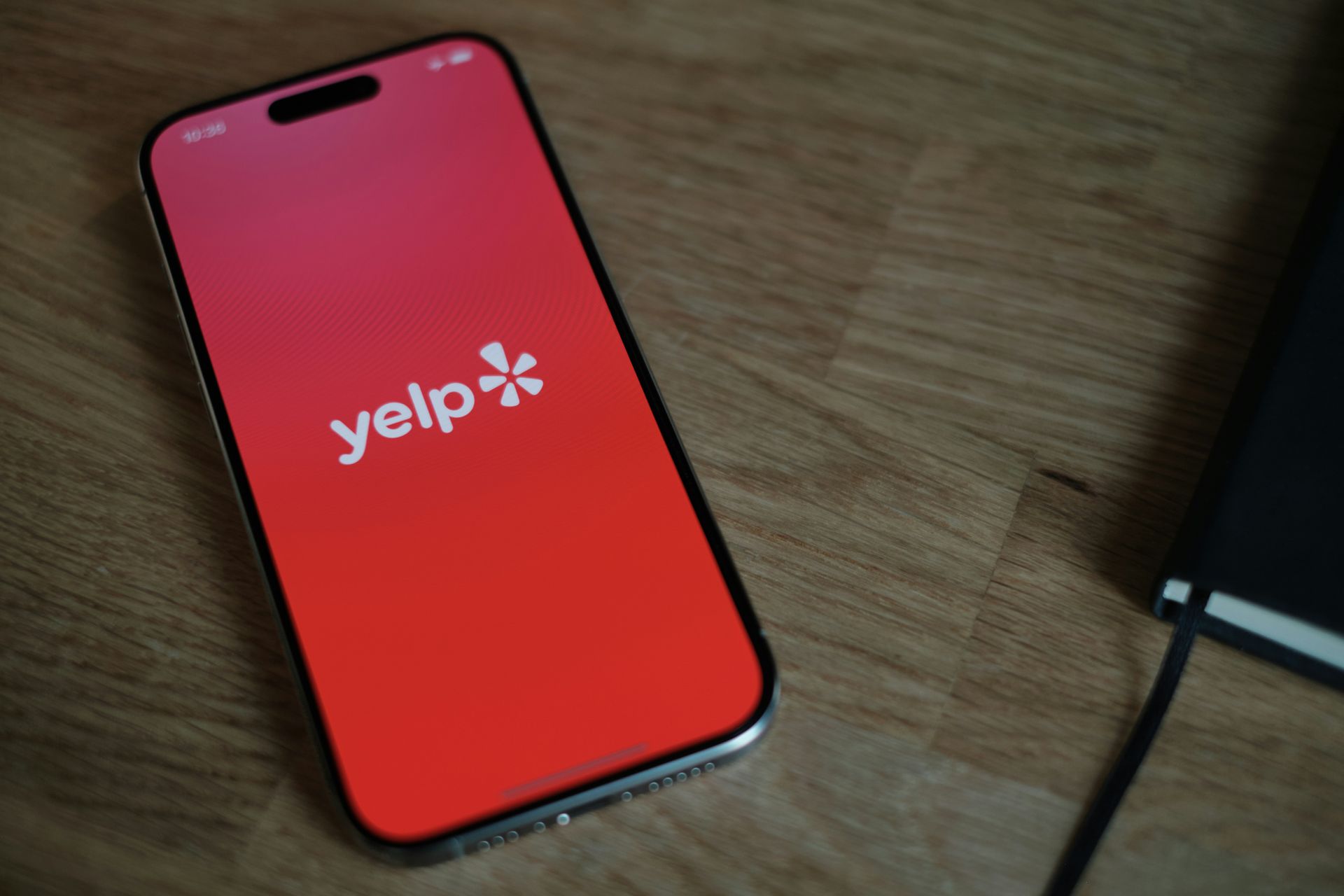5 Reasons Why Branding Matters and Why You Should Care About It

Your brand is one of your business’s most important assets. Why? It sets you apart from the competition, showing your audience why they should engage with you and not the other guys. Having a recognizable brand is core to your business's story, and it’s how your audience remembers you. Marketing is what you say about your company, but your brand is what your customers say about you.
Basically, branding matters, and if you’re not focused on branding yet, now’s the chance to make a change.
Forbes publishes an annual list of most-valued brands, underscoring the importance of brand value in today’s ever-changing, digital world. Industry behemoths and newcomers alike — a strong brand goes beyond a logo, builds loyal consumers, and generates revenue growth.
While branding can feel intangible, we’re here to help demystify this essential component of any business. So, we compiled the top five reasons branding matters below. But before we get there, we wanted to clarify what we mean when we say “brand identity.”
What is brand identity?
Just like your personality makes you, you, a brand gives your business a character of its own. In simple terms, the combination of marketing and advertising strategies provides a window into your company and its value. Your brand strategy should account for every interaction point your audience has with your company — so make sure all communication reflects the ethos of your brand.
Effective branding strategies build long-term connections with consumers on board with the brand’s trajectory. Influential brands create trust — and most importantly, familiarity – between you and your audience. Just remember, when it comes to building a strong brand identity, consistency is key.
So, why does branding matter so much?
1. Forms a strong bond with your customers
Your brand needs to make a great first impression with your audience. Great brands can clearly and concisely communicate what they do, what they offer, how they operate, and what they stand for. Influential brands are not only authentic but transparent. As Gen Z continues to drive spending patterns, brands have an opportunity to understand their unique needs, desires, and purchasing decisions.
Having deep, personal connections with consumers means your brand effectively speaks to its value. Take Uber, for example. Uber doesn’t just offer rides; it provides convenience . In doing so, the brand calls out every pain point of taking traditional taxi services while highlighting its superiority. Instead of standing on a street corner waiting to flag down the nearest available taxi, you can use an exclusive app that allows you to order a car right to your current location and is already tied to your secure payment method. From a user experience and cost standpoint, why would you ever consider taking a taxi again? By connecting your brand to your consumer’s needs, you’re sure to build brand loyalty that strengthens with each interaction.
2. Builds a loyal customer base (repeat customers)
A brand is so much more than marketing materials and advertisements. Your brand is front-and-center during every interaction your customer (or potential customers) have with your business – a compilation of experiences and touchpoints.
Once a customer makes their purchase, you need to ensure their interactions with your brand remain positive. If your buyer’s experience changes as soon as they sign a check, they probably won’t be coming back. Loyal customers are valuable because you only have to spend the time, money, and effort to acquire them once. Even better, returning buyers often turn into brand advocates who recommend your product or services within their network.
With word-of-mouth recommendations ranking second only to google search — 92 percent of consumers believe suggestions from friends and family more than advertising — brand advocates can be a powerful tool for any marketing strategy. Plus, free advertising never hurts.
3. Allows you to charge a premium price for goods or services
Your brand differentiates you from the pack. With customers who support your brand, you gain a competitive edge in the marketplace. As your brand becomes more recognizable, consumers will be more interested in your products or services. If consumers feel your brand has a unique value proposition over others — what is known as perceived value — they’re likely to pay a premium for it. You can increase your brand’s perceived value without actually increasing the product or service’s value. What’s the secret? You just have to alter people’s perceptions of your brand.
So, what is perceived value? It’s your customer’s understanding or impression of your brand. If they feel the benefits of your product or service outweigh the cost, they’re likely to have a high perceived value. Brands that sell low-cost goods or services can tweak their marketing to emphasize how their product can enhance your lifestyle. If consumers see potential value in purchasing your product, you’ve done a great job at manipulating their perception to see things your way.
Apple is a prime example of leveraging the idea of perceived value to gain a cult following for its product lineups. Even though Apple’s laptops and phones don’t possess any unique technical abilities compared to their Samsung or Google counterparts, Apple customers are intensely loyal to their brand. Most iPhone users have never even tried to switch operating systems, and wouldn’t dare consider doing so. In fact, Apple is seeing a big surge of new converts from the Android platform — and branding plays a large part in that.
By creating simple, approachable marketing and promotional materials, Apple remains the “cool” option for technology. All of their products are sleek and modern in aesthetic and all features of their operating system are designed to be perfectly adapted for their users. Because of their higher price, wealthier customers tend to purchase Apple products — resulting in additional perceived value. People on the outside looking in feel that they can become successful, too, if they buy an Apple computer, watch, phone, tablet or any other product.
4. Helps people recognize you
All well-known brands have one thing in common: they’re memorable. Being recognizable is essential for your brand to stand out from the competition. Content is king, but that's only a part of the branding puzzle. Create a brand that exudes confidence in your product, process, and people.
For example, LuluLemon sells luxury athleisure products, but nothing proprietary sets them apart. To catalyze their brand credibility, they created a community around their brand and led with lifestyle marketing. By offering in-store yoga classes and promoting health and wellness, the athleisure brand transformed customers into active brand advocates who crave premium quality and brand exclusivity.
Whether you’re a big company focusing on social responsibility or a startup with a casual style, a well-defined mission, core set of values, and guiding principles are crucial to success. However, there’s always room for improvement. Even long-standing brands need a refresh from time to time. A rebrand can help long-standing brands stay relevant and top-of-mind. Strong brand identity will impact the success of a rebrand and ensure your brand grows its influence.
We’re big fans of the Old Spice rebrand. Created in 1937, the brand became synonymous with “old man smell” with each passing decade. But, they shed the stereotype with fun content and pop culture icons like LL Cool J, creating media buzz that revolutionized public perception. At the end of the day, they sell soap and deodorant — nothing sexy or exciting there — but are seen as more approachable and interesting because of their marketing and branding.
5. Develops credibility in your company's industry
Brands need to build and consistently grow their brand credibility. Consumers need to feel that your brand delivers on its claims and provides a delightful consumer experience at every touchpoint — everything your company says and does needs to be consistent and authentic.
Having a strong brand presence will increase recognition, which builds credibility within your industry. Consumers who know you are likely to buy from you. Marketing Dive found that 90 percent of people buy from brands they follow on social media (and even increase their share of wallet by 12 percent), so social sharing is a significant component of brand strategy. With a strong brand, you can create a consistent experience for your followers across all major platforms without losing impact along the way.
This year, influencer marketing will only continue to grow, highlighting the notable influence of social media on purchasing behaviors. This online community’s reviews, endorsements, and recommendations can help businesses generate leads, reach sales goals, and significantly increase brand awareness and credibility. Establishing and nurturing digital and physical relationships will increase your brand awareness, directly impacting your brand’s perceived value and share of voice.
Branding matters. Are you maximizing your branding efforts?
If you’re ready to take your branding to the next level, we can help. If you’re looking for more information on how to improve your business’ branding or marketing presence, you’ve come to the right place. Reach out to us to learn more about how we can help your brand excel online and build credibility with your consumers.














